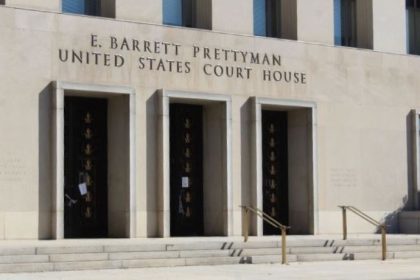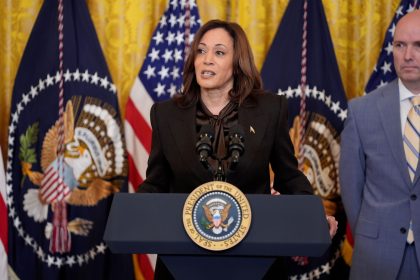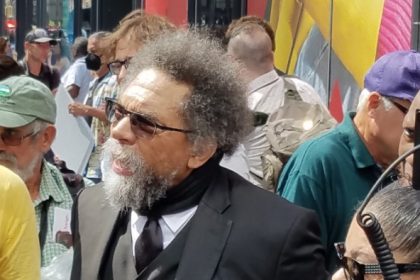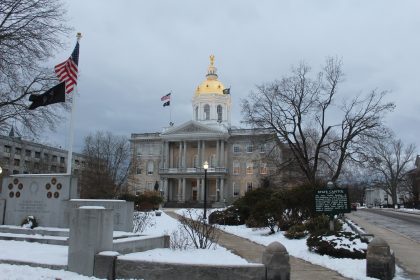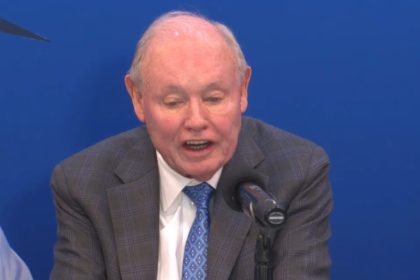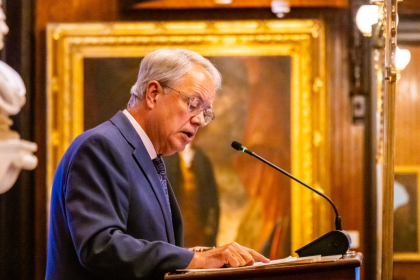As Voting Rolls Plunge Amid Pandemic, A Move to Reinvent the Registration Drive Begins

WASHINGTON — While some progressives are bullish about the outlook for the November election, Tatenda Musapatike surveys the political landscape and sees masses of unregistered voters who were supposed to be on the rolls by now, but for the pandemic.
It is making her increasingly anxious, and she is not alone.
“It is hard to overstate just how underwater voter registration is,” said Musapatike, senior director of campaigns at Acronym, a progressive group focused on digital strategy.
Democrats and Republicans alike are struggling to confront a simmering crisis that could hurt either or both of them in assorted contests this fall. Yet the stakes are particularly high for the left, which is relying heavily on mobilizing the sorts of people who often don’t vote to help oust President Donald Trump.
The numbers of new voters added to the rolls lately are way below where progressives want and need them to be. Voter registration is yet another casualty of the pandemic, which in this case tore apart carefully laid plans for mass mobilization through door-to-door drives signing people up.
After a lot of talk about progressive groups being well-equipped to shift their efforts online, the reality has so far proven more complicated. Many tactics Democrats rely on to lure potential voters are older even than the party’s septuagenarian presidential candidate. The messaging is stale, the targeting out-of-touch and the infrastructure not entirely compatible with the digital age.
That has operatives like Musapatike working at a breakneck pace to innovate, desperately trying to bring cultural relevance and technological competence to the anachronistic American ritual of voter-registration drives. While money from big donors is flowing their way, they are confronting headwinds as some party leaders question how much to invest in experimentation.
“We know what has worked in the past,” Musapatike said. “But we haven’t expanded our learning. Big ideas need to be explored.” The $11 million effort she is spearheading, under the brand “People’s Power Grab,” aims to talk to groups such as young Black and Latino Americans on platforms including TikTok and Instagram, with the kind of culturally resonant content that e-commerce marketers tapped into long ago.
One video has a stylish Black woman swiping through a dating app and checking out the playful profile of another user, only to balk when it reveals he’s a non-voter. Viewers of the video can then tap on a link that brings them to a page where they can register easily. It is supported by pioneering technology that simplifies the process and enables organizers to track the registration status and engage with the new voter through Election Day.
Jesse Horwitz, an e-commerce entrepreneur, has been pushing Democrats to embrace just that kind of campaign, with limited success. Before the pandemic, he ran a voter registration pilot program that experimented with e-commerce targeting tactics and user-driven content that has served corporate America well. Horwitz said he enlisted voters to register at a fraction of the price of traditional models, which often cost more than $100 for each registration.
While he offered his blueprint free to organizations spending big to register Democrats, it’s mostly been collecting dust. “It’s befuddling to me,” Horwitz said.
The groups that have experimented outside the box are seeing some big successes. Voto Latino, a 15-year-old, digitally oriented organization focused on spurring the Latino vote, saw its unconventional tactics rewarded with an explosion of interest amid the recent racial justice protests. More than 98,000 people registered through its platform in June, a nearly ten-fold increase over May, which was already a decent month for new registrants.
After the 2018 midterm election, half of the country’s voting-eligible Latinos reported they never got contacted by anyone about their registration status or plans to vote, according to Voto Latino. “There is this stigma in the establishment that Latinx people don’t come out and vote,” said Danny Turkel, the group’s communications director. Democrats must “invest in contacting them and speaking their language, which is not Spanish but the way they communicate in their everyday lives.”
Rock the Vote has also seen a surge in registrations lately, attracting college-age voters with events headlined by celebrities and influencers. When We All Vote, a new organization co-chaired by Michelle Obama and stars including Lin-Manuel Miranda and Janelle Monae, has mobilized tens of thousands of young voters by seizing on what is trending and on the energy of the current protests.
When #couchparty started trending on Twitter — signifying the popularity of DJ D-Nice’s online tunes-spinning for people stuck at home — the group pounced, launching its own virtual couch parties with him. The wildly successful events featured both music and talk — to recruit those participating to vote, and to get their friends registered, too.
“We knew it was important for people to talk about voting in a way that reaches people, not about doing this in some politically correct way,” said Stephanie L. Young, a managing director of the group.
For all such efforts, the voter registration decline triggered by states’ stay-at-home orders persists. Not even 200,000 people were registered in May, compared with nearly 1.5 million in May of 2016, according to the Democratic data analysis firm TargetSmart.
Those early numbers also showed people of color and voters under 40 making up a smaller share of new voters in April and May than previously. That gap, analysts at TargetSmart say, may have closed in June, when nationwide anti-racism protests ignited the interest reflected in the numbers posted by groups like Voto Latino and When We all Vote.
Yet many progressives are alarmed. They have been furiously trying to upgrade technology to navigate states’ balky registration systems, to help volunteers easily find who isn’t registered, and then get them on the rolls more simply.
Outvote is a startup that seeks to enable activists to enlist people in their social networks to register and vote. “It is unfortunately very complicated to vote in this country,” said its founder, Naseem Makiya. “Our app helps you see which forks they are stuck at, and make sure they move to the next step.”
The firm Civitech is arming progressive groups and community activists with technology that uses Google Maps to create a real-time digital map of every unregistered voter. Neighbors, for example, can see who in their community is not on the rolls and then reach out to them.
A hospital in Philadelphia adopted every block within a one-mile radius, urging residents to send in their applications for vote-by-mail ballots, with a tongue-in-cheek note about not wanting to see them at intake with COVID-19 contracted during in-person voting.
“Building this 10 years ago would have been impossible,” said firm co-founder Jeremy Smith, crediting Google and Amazon mapping applications. “There are a lot of people who would vote if you bothered to ask them.”
His technology enables even citizen activists to engage in sophisticated microtargeting. It can, for example, find the seven Latinos who are unregistered in one particular neighborhood in Riverside. Or it can more broadly give organizers a view of where in a county Black residents are registering at high rates, and where there is work to be done. After potential voters are reached by cell phones, organizations can arrange to send them registration forms with prepaid postage, or walk them through online registration, where available.
But states’ and counties’ constantly shifting registration rules are a persistent challenge. Only two states — Pennsylvania and Virginia — accept voter registration applications submitted through sites like People’s Power Grab. Everywhere else, the information needs to be routed onto a state-sanctioned form.
And the hurdles some states have created to getting a vote-by-mail ballot are adding to the challenge, even as the pandemic pushes voting in that direction.
“The rules are radically different state by state,” said Emily Del Beccaro, a co-founder of OpenField, a digital organizing firm that shifted its strategy to focus on enabling activists to register voters remotely. Wisconsin, she said, has no single place voters send their vote-by-mail application. Hundreds of voting offices process them, and the voter must find the office for their area, making automation tough for organizations aiming to register thousands of voters a day.
“All these organizations have been having to build new systems from scratch,” Del Beccaro said. “It is incredibly complicated.”
———
©2020 Los Angeles Times
Distributed by Tribune Content Agency, LLC.

















